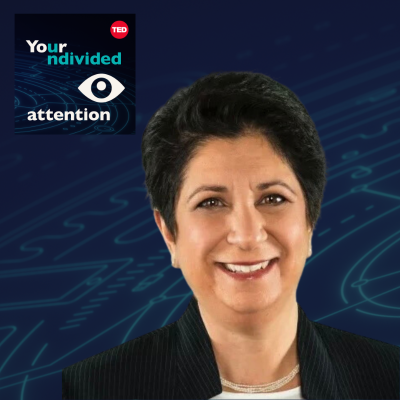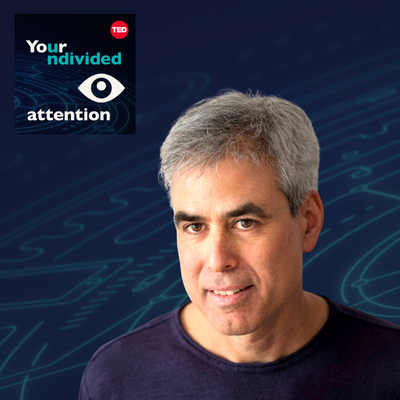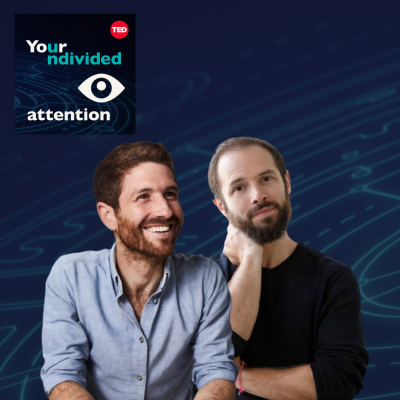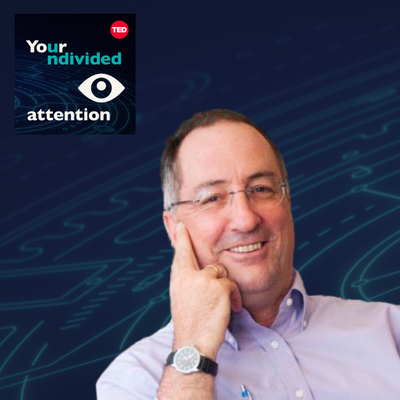Episode 70 | Jun 22, 2023
What Can Technologists Learn from Sesame Street? with Dr. Rosemarie Truglio
What happens when creators consider what lifelong human development looks like in terms of the tools we make? And what philosophies from Sesame Street can inform how to steward the power of AI and social media to influence minds in thoughtful, humane directions?
When the first episode of Sesame Street aired on PBS in 1969, it was unlike anything that had been on television before - a collaboration between educators, child psychologists, comedy writers and puppeteers - all working together to do something that had never been done before: create educational content for children on television.
Fast-forward to the present: could we switch gears to reprogram today’s digital tools to humanely educate the next generation?
That’s the question Tristan Harris and Aza Raskin explore with Dr. Rosemarie Truglio, the Senior Vice President of Curriculum and Content for the Sesame Workshop, the non-profit behind Sesame Street.
Major Takeaways
Sesame Street defies media norms with its unique approach to childhood development and psychology in the context of television. When comedy writers, musicians, and puppeteers join forces with experts in developmental psychology and other fields, it’s possible to create meaningful educational content for children.
When Sesame Street debuted in 1969, television was a “vast wasteland.” Joan Ganz Cooney, Sesame Street founder and visionary, observed children learning through commercial jingles. That inspired a curriculum-driven model of creating impactful and relevant content for children and the adults in their lives, and it’s still in use today.
It is possible to create normative content for children around the world, regardless of culture or geography. Sesame Street is grounded in the learning sciences, which keeps the show focused on what is normative worldwide. Math, science, empathy, and understanding emotions are universal concepts. There's more universality than there is specificity on Sesame Street, and content is localized so that the characters and settings resonate through the appropriate cultural lens.
We can apply Sesame Street’s design values to technologies like AI and social media. The care and thought that go into Sesame Street starkly contrasts with the reckless deployment of AI in products children access, like Snap’s My AI chatbot. We can leverage Sesame Workshop’s hard-won lessons about responsible developmental media and education so that we can co-create a media environment in which children - and all of society - can thrive.
Other recommended reading
Street Gang: How We Got to Sesame Street
This documentary offers a rare window into the early days of Sesame Street, revealing the creators, artists, writers and educators who together established one of the most influential and enduring children’s programs in television history
Sesame Street: Ready for School!: A Parent's Guide to Playful Learning for Children Ages 2 to 5 by Dr. Rosemarie Truglio
Rosemarie shares all the research-based, curriculum-directed school readiness skills that have made Sesame Street the preeminent children's TV program
G Is for Growing: Thirty Years of Research on Children and Sesame Street co-edited by Shalom Fisch and Rosemarie Truglio
This volume serves as a marker of the significant role that Sesame Street plays in the education and socialization of young children
The Democratic Surround by Fred Turner
In this prequel to his celebrated book From Counterculture to Cyberculture, Turner rewrites the history of postwar America, showing how in the 1940s and 1950s American liberalism offered a far more radical social vision than we now remember
Amusing Ourselves to Death by Neil Postman
Neil Postman’s groundbreaking book about the damaging effects of television on our politics and public discourse has been hailed as a twenty-first-century book published in the twentieth century
Sesame Workshop Identity Matters Study
Explore parents’ and educators’ perceptions of children’s social identity development
Effects of Sesame Street: A meta-analysis of children's learning in 15 countries
Commissioned by Sesame Workshop, the study was led by University of Wisconsin researchers Marie-Louise Mares and Zhongdang Pan
U.S. Parents & Teachers See an Unkind World for Their Children, New Sesame Survey Shows
According to the survey titled, “K is for Kind: A National Survey On Kindness and Kids,” parents and teachers in the United States worry that their children are living in an unkind world



